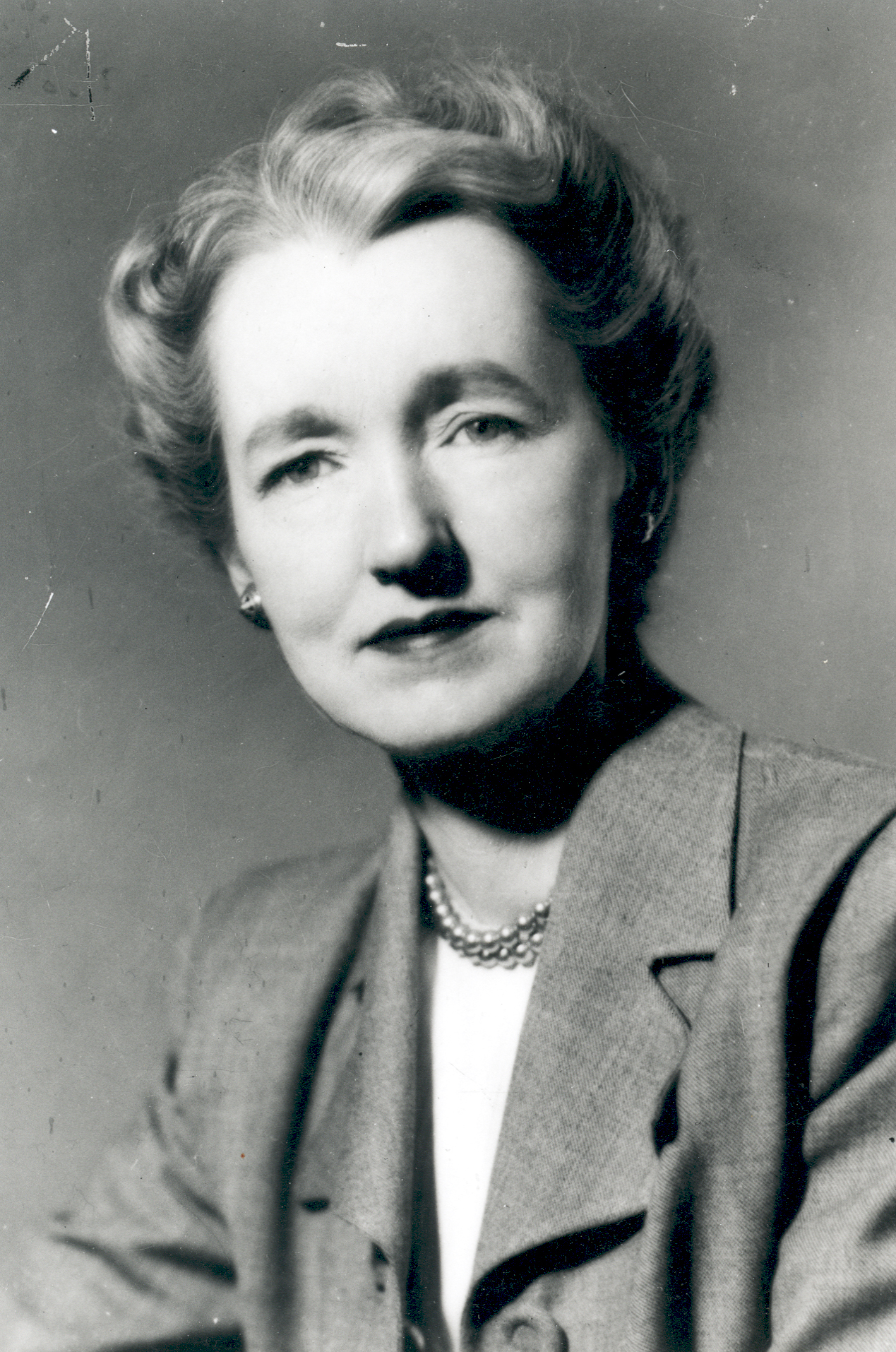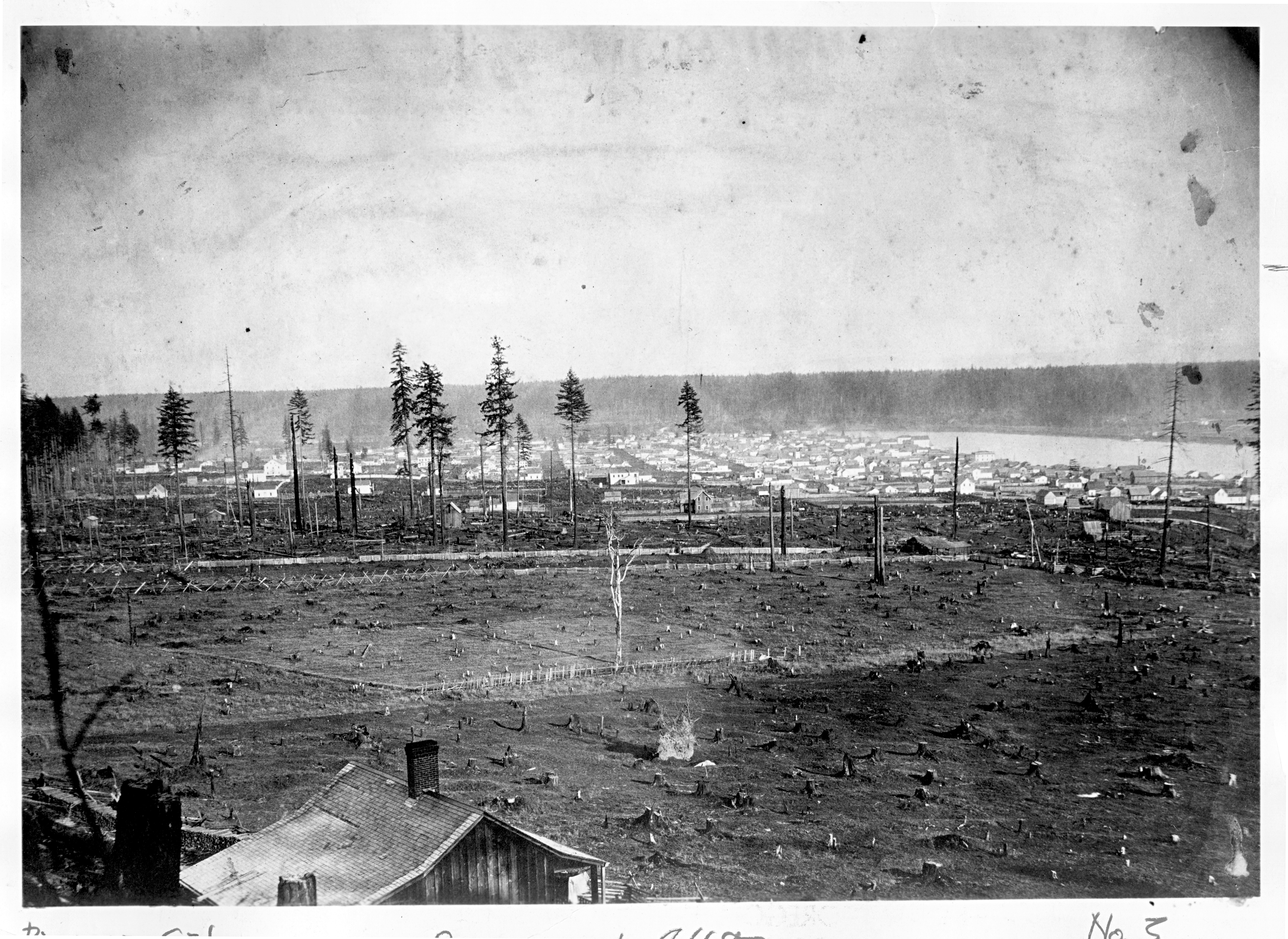Fred L. Peterson, a Portland city commissioner for twelve years, was elected mayor in 1953, serving one term. In city council and city hall, Peterson’s conservative political agenda promoted business-friendly programs and legislation and grand building projects. He rejected progressive municipal reforms, including public housing projects and anti-vice legislation.
Peterson was born in Minnesota in 1896 and moved with his family to southeast Portland and the Lents neighborhood in 1902. His father was a pharmacist, and Peterson studied pharmacology hoping to open his own drugstore. He served in the National Guard and was sent to France during World War I. He operated a successful neighborhood pharmacy in the Hollywood District for twenty-two years.
In 1940, Peterson was elected city commissioner, ousting incumbent Jake Bennett. Commissioner Peterson stood firmly behind the creation of the city’s majestic Forest Park, but rejected Mayor Dorothy McCullough Lee’s emergency anti-gambling legislation in 1949 and her government reform initiative in 1950.
Peterson ran against Mayor Lee in 1952, beating the incumbent possibly because she did not fully understand the connection between Portland’s vice economy and the business community, and she was naïve to think she could run the city without their input. Peterson collected the business vote and defeated Lee by a 6 percent margin.
Mayor Peterson "took his election," historian Carl Abbott suggests, “as a firm rejection of the municipal reform agenda.” He opposed government-subsidized low-income housing and pushed for the construction of the Exposition-Recreation Center (renamed Memorial Coliseum), which ultimately removed a large section of available housing and storefronts in Portland’s segregated African American community. The mayor appointed individuals to the site-selection committee who were more interested in the personal rather than the community benefits of the site.
Mayor Peterson also ignored the city’s lucrative and menacing vice industry. In 1956, the Oregonian exposed the city’s organized crime rackets and the corrupt city law enforcement officials who either tolerated or profited from them. The exposé and ensuing investigations concluded that Peterson, as well as his police chief Jim Purcell, allowed gambling dens, brothels, and unlicensed bars to operate in the city without harassment. The mayor was not charged with any crime, but the implication that he was “on the take” and that the scandal occurred on his watch damaged his political career.
Peterson’s campaign strategy for reelection in 1956 included linking rival candidate Sheriff Terry Schrunk to the vice scandal. While Schrunk was eventually indicted for corruption and perjury (he was later acquitted), not even that could save Peterson. Schrunk beat the mayor by nearly 40,000 votes. Peterson left city hall and returned to operating the Grant High Pharmacy. He died in 1985 at age eighty-nine.
-
![]()
Fred L. Peterson, Portland Mayor, busy at his desk, January, 1953.
Courtesy Oregon Hist. Soc. Research Library, Oregon Journal Collection, 013371
-
![]()
Ed Sullivan (left) visiting with Portland Mayor Fred Peterson and an unidentified man (right). Sullivan visited Portland to take part in the 1954 Portland Rose Festival.
Oregon Historical Society Research Library, Digital Collections, Al Monner new negatives, OrgLot1284_2287_1
-
![]()
Formal portrait of Portland Mayor Fred L. Peterson, 1954.
Oregon Historical Society Research Library, Oregonian Collection, 008903
-
![]()
City Commissioner Fred L. Peterson in the driver's seat of one of seven street cleaning flushers being put into service, 1941.
Oregon Historical Society Research Library, Oregon Journal Collection, 006461
Related Entries
-
![Coin Machine Men]()
Coin Machine Men
The Coin Machine Men of Oregon was a statewide trade association of pin…
-
![Dorothy McCullough Lee (1902-1981)]()
Dorothy McCullough Lee (1902-1981)
In 1947, the city of Portland crawled with gambling halls, strip joints…
-
![Portland]()
Portland
Portland, with a 2020 population of 652,503 within its city limits and …
-
![Terry Schrunk (1913-1975)]()
Terry Schrunk (1913-1975)
Terrence Doyle "Terry" Schrunk served as mayor of Portland for sixteen …
Map This on the Oregon History WayFinder
The Oregon History Wayfinder is an interactive map that identifies significant places, people, and events in Oregon history.
Further Reading
Abbott, Carl. Portland: Planning, Politics, and Growth in a Twentieth-Century City. Lincoln: University of Nebraska Press, 1983.
Lansing, Jewell. Portland: People, Politics, and Power, 1851–2001. Corvallis: Oregon State University Press, 2003.
Pitzer, Paul C. “Dorothy McCullough Lee: The Successes and Failures of ‘Dottie-Do-Good.’” Oregon Historical Quarterly 91:1 (Spring 1990), 5–42.











